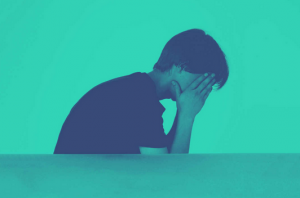Let’s talk about puberty blockers, an essential element of safe and successful gender-affirming care for transgender youth. Social media, politicians, and news outlets have shared a great deal of misleading information about what these drugs do, how they work, and whether they’re dangerous or reversible. This has even led some U.S. cities and regions to enact legislation against their use. Tragically, some localities have even established punitive measures against trans children and the parents who allow them this life-improving and sometimes even life-sustaining care. So let’s take a look at what they really are, how they really work, and why they’re such important mental and physical health tools for many trans kids.
Puberty-blocking drugs don’t stop puberty for all time; they just stop it for right now. Their results are reversible. If kids stop using them, puberty resumes. There is no evidence that puberty blockers affect future fertility, though taking estrogen or testosterone with them may impact the ability to have children later.
Puberty blockers were approved by the FDA in 1993. According to Cedars Sinai Medical Centers, they’re considered very safe by the medical community. They may possibly affect height (they may delay growth-plate closure, which can lead to taller adult height), and may slightly lower bone density for some. But so far, research shows the effects to be minimal. Doctors and hospitals are required to provide detailed information about risks and downsides to children and their families before providing them with these medications. People with severe gender dysphoria (i.e., who feel their genders to be different that the one assigned to them at birth) usually feel that living in a body that feels more like them is worth being a little taller, or worth taking bone-strengthening minerals and drugs to avoid osteoporosis later in life.
When children feel strongly that their genders don’t match the ones assigned to them at birth, going through puberty can feel crushing and tragic—a permanent sign to the world to treat them as someone they know they’re not. According to the Mayo Clinic, puberty blocking drugs keep kids from going through major changes (some irreversible) like the development of breasts, body hair, and male genitalia; deepening of the voice; and menstruation.
To get rid of those signs, many people go through painful, expensive, and difficult surgery later. But there are certain things that happen to the body at puberty that may not be reversible even with surgery. Those who undergo surgery later often experience complications, pain, great expense, and all the risks that come with surgery and anesthesia. Yet they still don’t have physical outcomes as successful as they might have if given puberty blockers at the first signs of puberty.
Many trans children who go through puberty and see their bodies undergoing distressing, permanent changes suffer severe depression and other negative mental health challenges, according to the National Institutes of Health. Some engage in self-harm such as cutting, substance abuse, or suicide. If given access to puberty blockers, they can delay or stop many of those changes, buying them time until they’re adults and can decide legally how they want to present and identify themselves. Puberty blockers have been shown to significantly reduce depression and suicidality in trans children.
Puberty blockers have led to improved mental health, better social interactions with other kids, and sometimes avoidance of future gender-confirmation surgeries.
The physician information portal HCPLive (which is part of the MJH Life Sciences publishing company) writes, “Investigators said that previous data showed gender-affirming hormones (GAH), puberty blockers (PBs), and gender-affirming surgeries have been found to be independently associated with reduced depression, anxiety and additional adverse mental health outcomes. Puberty blockers administered during puberty can actually reduce suicide risk in this population. A decreased lifetime incidence of suicidal ideation was also found among adults who received access to puberty blockers during adolescence.”
In short, puberty blockers improve and even save lives. They don’t poison children, or take away their choices later. These drugs give children the freedom to delay major health and life choices until adulthood. They align physical and psychological health, and let children feel more like themselves. Providing them to children whose lives could be immeasurably improved—even saved—by them makes them an essential element of pediatric healthcare.



